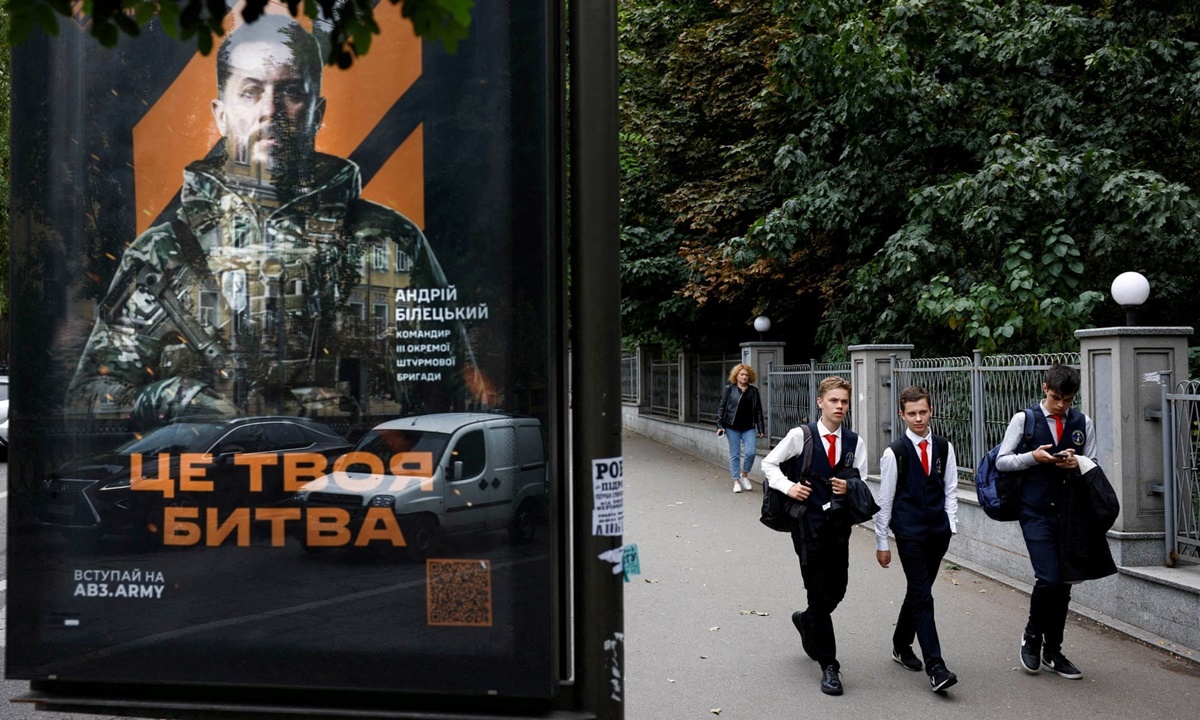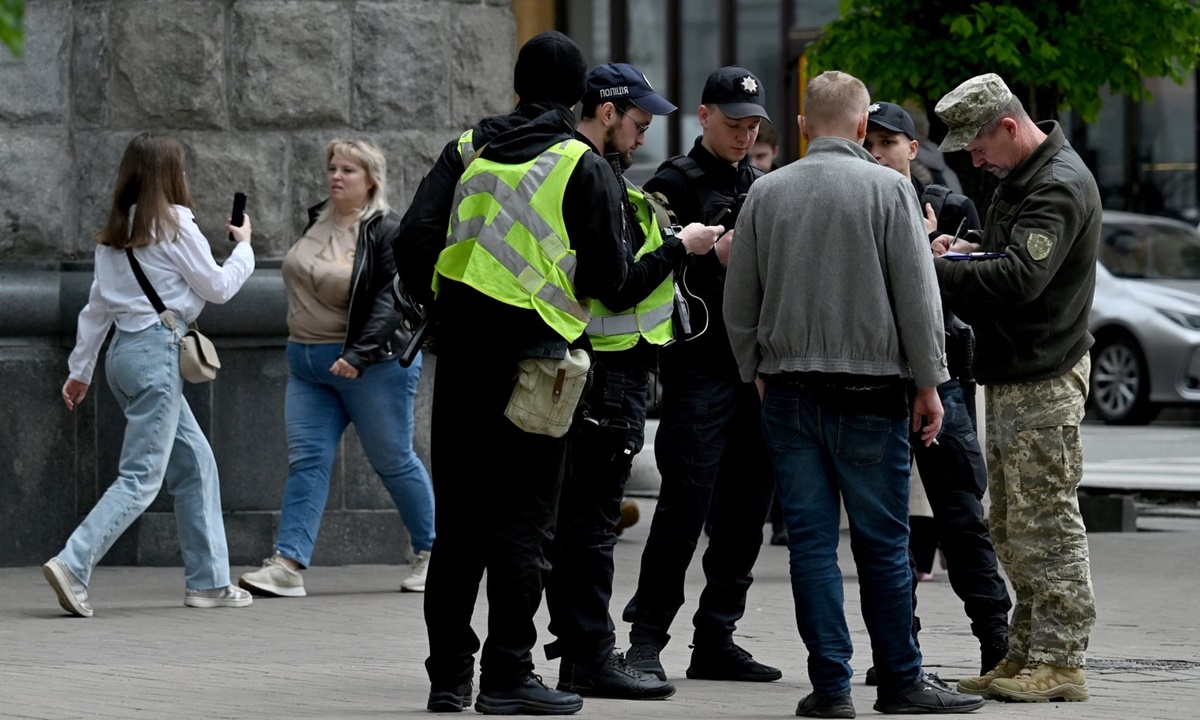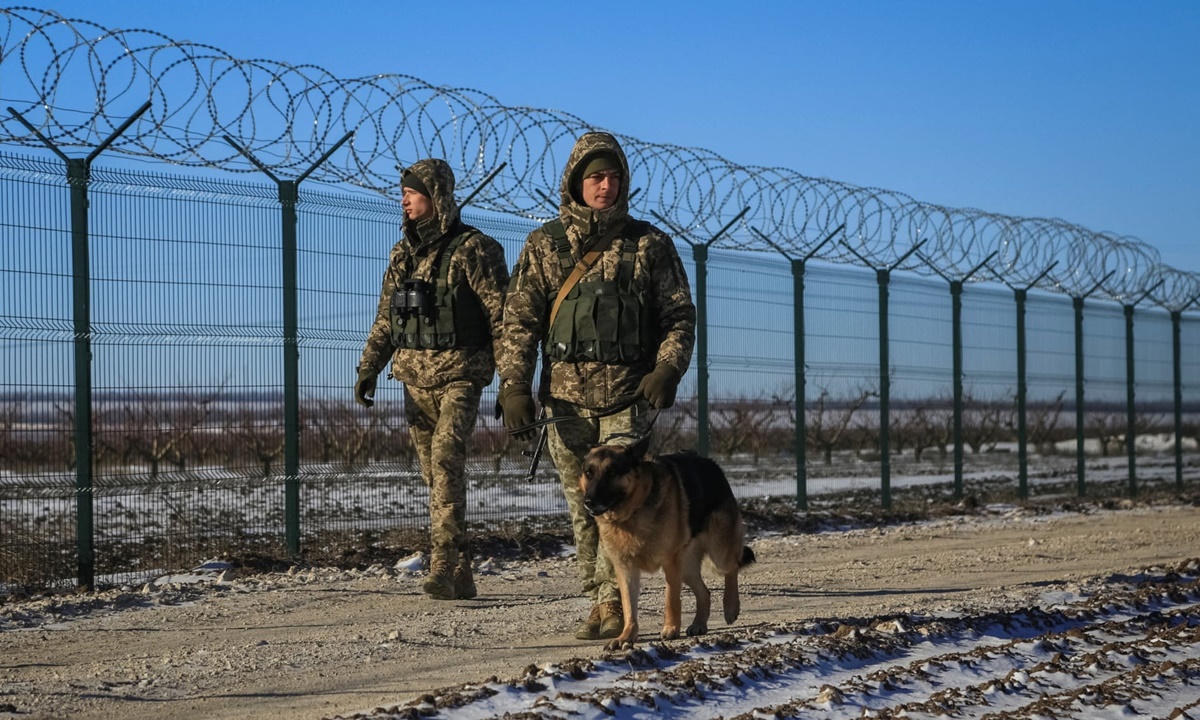On 27/8, Ukrainian Prime Minister Yulia Svyrydenko announced that the government would change regulations to allow young men aged 18 to 22 to legally leave the country, despite the ongoing conflict with Russia.
President Volodymyr Zelensky said these changes "have been agreed upon with the Military Command". Prime Minister Svyrydenko added that the new regulation "also applies to citizens who are abroad for various reasons".
 |
Male students walk past a poster urging people to register for military service in Kyiv, Ukraine, in September 2023. Photo: Reuters |
Male students walk past a poster urging people to register for military service in Kyiv, Ukraine, in September 2023. Photo: Reuters
This is a significant shift. Shortly after the conflict with Russia erupted over three years ago, Ukraine imposed martial law, which included a travel ban on all men aged 18 to 60 to prevent them from fleeing abroad to avoid military service.
Explaining the changes, Prime Minister Svyrydenko said the government wants "Ukrainians to maintain connections with the country as much as possible".
The travel ban on men has been a major source of tension in Ukraine. It has separated families and deterred many abroad from returning for fear of not being allowed to leave again.
Officials are also concerned about the increasing number of parents sending their sons abroad before they turn 18 to circumvent the ban. "The final grades of high school are almost entirely female students. Universities lack male applicants," said Oleksandr Fedienko, a member of parliament from the ruling party. "This decision will help keep young people in Ukraine so they can contribute to their own country instead of another."
The debate surrounding young Ukrainians leaving the country is not new. In July, Parliament Speaker Ruslan Stefanchuk highlighted the inconsistencies of men aged 18 to 22 not being subject to mandatory military service but still facing travel restrictions.
On 12/8/2025, at the Ukrainian Youth Forum, President Zelensky announced he had instructed the government and military to develop a process to ease regulations for this age group. He believes this will allow young people to maintain ties with the state and have more educational opportunities.
According to Fedir Venislavskyi, a member of parliament from the ruling party, the previous travel ban prevented many young Ukrainians who wanted to study abroad from pursuing their plans, forcing them to find informal ways. The new initiative aims to remove such barriers.
It's unclear how this change will impact Ukraine's military recruitment.
 |
Ukrainian army and police check the documents of a man in central Kyiv in April 2023. Photo: AFP |
Ukrainian army and police check the documents of a man in central Kyiv in April 2023. Photo: AFP
Ukraine's decision to allow men under 23 to leave seems to contradict calls from the US and the West for Kyiv to lower the conscription age to meet the need for manpower on the battlefield. Many experts believe the troop shortage is Ukraine's biggest challenge in confronting Russia, which has a much larger population.
"It's difficult to explain this action when we are engaged in a war of attrition," said Mykhailo Samus, director of the New Geopolitics Research Network in Kyiv. "Essentially, the scale of the mobilization reserve will be reduced."
But other Ukrainian experts and officials don't believe easing travel restrictions will lead to a mass exodus of young men. Instead, it could further strengthen their ties with Ukraine. Under the new regulations, young men are still prohibited from leaving the country for two years before they are eligible for military service. They argue that this adjustment could keep some young people in the country longer to contribute to society while providing international experience for others who may one day return to support Ukraine.
"The goal of this decision, first and foremost, is to provide young Ukrainians with more opportunities to study, intern, and work legally abroad. Their experience will later be used to develop the country," said Ukrainian Interior Minister Ihor Klymenko.
The government's adjustments are receiving support from Ukrainians, especially families with sons. Under the old rules, teenagers who left the country when the conflict began would not dare return to visit their homeland unless they agreed to stay in Ukraine permanently. This often meant they were deprived of the opportunity to see their fathers in Ukraine. Thanks to the new regulations, this will change.
 |
Ukrainian border guards patrol along the border with Moldova in the Odesa region in 2024. Photo: Reuters |
Ukrainian border guards patrol along the border with Moldova in the Odesa region in 2024. Photo: Reuters
Easing travel restrictions will also reduce pressure on families with sons who still live in Ukraine.
Oksana, 45, has a 16-year-old son and two 18-year-old nephews. She said her family has no plans to take the boys out of the country, but she is still pleased with the new regulation.
"Psychologically, it's good to know that our sons can still be abroad without being threatened by conflict and at least see the sea, swim safely for at least a few weeks without fear of bombs and stray bullets," Oksana said.
Vu Hoang (According to AFP, AP, Reuters, News Ukraine)












